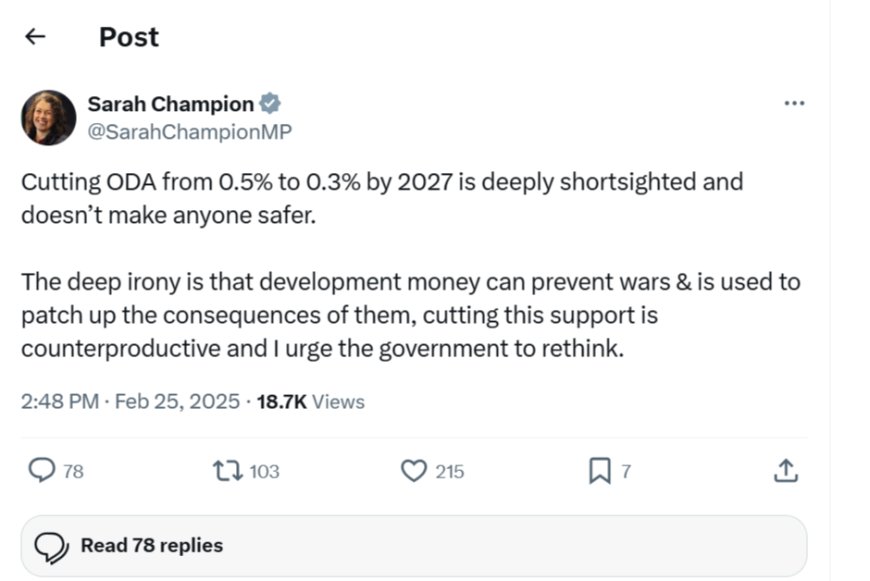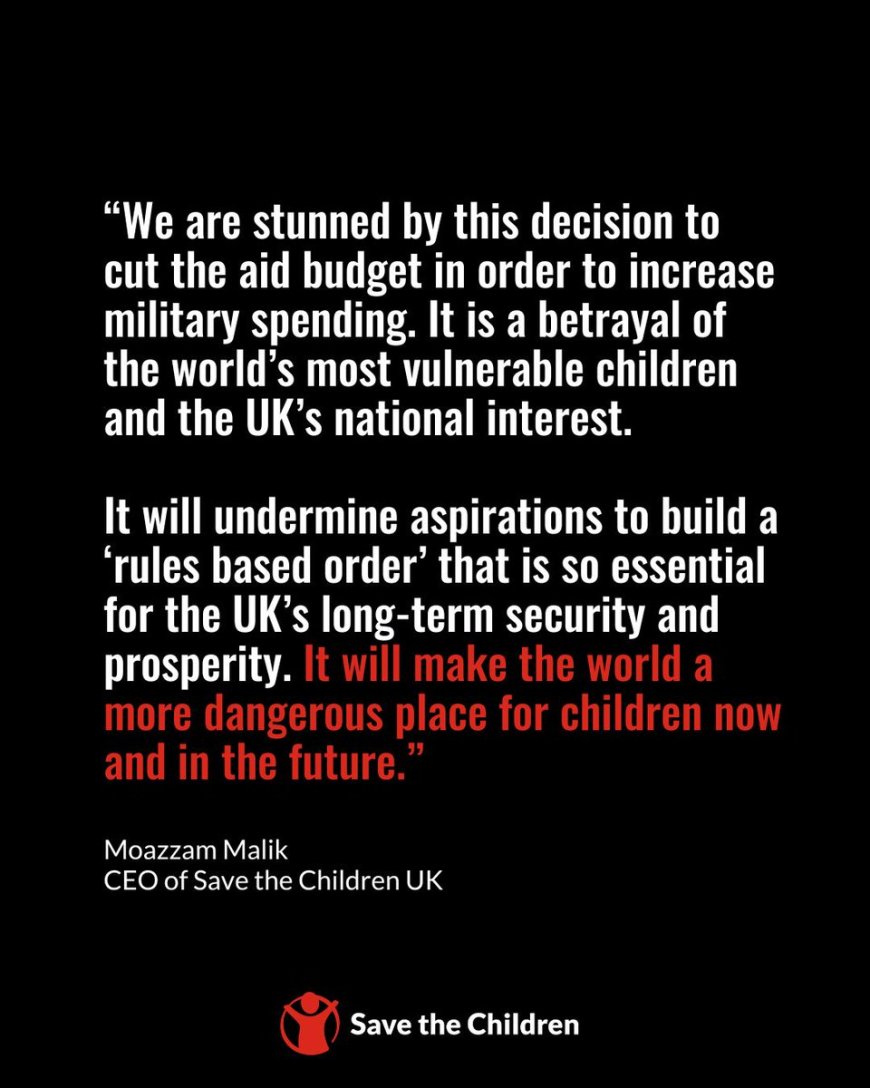Keir Starmer Cuts UK Aid Budget to Fund Defence: A Broken Promise with Global Consequences
Prime Minister Keir Starmer reduces UK Official Development Assistance (ODA) budget to 0.3% of GNI, breaking Labour’s manifesto promise. Learn how this decision impacts global development, UK reputation, and vulnerable populations.

Prime Minister Keir Starmer Cuts ODA Budget to Fund Defence Spending: A Broken Promise and Its Global Consequences
February 28, 2025 |
In a controversial move, Prime Minister Keir Starmer has announced a reduction in the UK’s Official Development Assistance (ODA) budget from 0.5% to 0.3% of Gross National Income (GNI), its lowest level in 25 years. The decision, which breaks a key manifesto promise, will reallocate funds to increase defence spending from 2.3% to 2.5% of GNI by 2027. This shift in priorities has sparked widespread criticism, with development advocates warning of dire consequences for the world’s most vulnerable populations and the UK’s global reputation.
A Broken Manifesto Promise
During the 2024 general election campaign, Labour pledged to “restore development spending at the level of 0.7% of gross national income as soon as fiscal circumstances allow.” The manifesto also emphasized a commitment to “rebuild Britain’s reputation on international development with a new approach based on genuine respect and partnership.” However, the decision to cut the ODA budget to 0.3% of GNI directly contradicts this promise, leaving the commitment in tatters.
This is not the first time the ODA budget has faced cuts.
In November 2020, then-Chancellor Rishi Sunak reduced the budget from 0.7% to 0.5% of GNI, citing fiscal constraints. Successive governments, including Labour, pledged to restore the 0.7% target “when the fiscal situation allows.” However, the criteria for achieving this, introduced by the previous government and adopted by Labour, have been widely criticized as overly stringent and nearly impossible to meet.

Funding Defence at the Expense of Development
The reallocation of funds from ODA to defence comes amid pressure from U.S. President Donald Trump for European nations to increase their defence spending. While the move aligns with broader geopolitical trends and addresses immediate security concerns, it has raised questions about the government’s long-term priorities.
Critics argue that the decision undermines the UK’s ability to address global challenges such as poverty, inequality, climate change, and humanitarian crises. Moazzam Malik, CEO of a leading development organization, described the move as a “betrayal of the world’s most vulnerable children and the UK’s national interest.” In a statement, Malik warned that the cuts would “jeopardise the UK’s partnership with countries across the world and international organisations,” adding that they would “make the world a more dangerous place for children now and in the future.”
The Broader Impact of ODA Cuts
The reduction in ODA spending will have far-reaching consequences, both globally and domestically:
- Humanitarian and Development Programs:
o The cuts will disproportionately affect vulnerable populations, including children in conflict zones and those living in extreme poverty.
o Programs addressing global health, education, and humanitarian needs will face significant funding shortfalls, with dire consequences for millions of people.
2. Global Commitments:
o The UK’s ability to deliver on its international obligations, such as co-hosting the Global Fund replenishment, is now in doubt.
o The decision risks weakening the UK’s influence in global forums and its ability to advocate for issues like climate change, poverty reduction, and global health.
3. Damage to the UK’s Reputation:
o The move signals a retreat from the UK’s historical leadership in international development and its commitment to a rules-based global order.
o Other nations may follow suit in reducing their development budgets, further weakening global efforts to address shared challenges.
4. Domestic Consequences:
o Global instability and economic inequality, exacerbated by reduced development spending, can lead to increased migration, health crises, and security threats that ultimately impact British citizens.
Contradictions in Foreign Policy
The decision to cut ODA spending also highlights contradictions in the government’s foreign policy. While Prime Minister Starmer has pledged to “stand with Ukraine,” the reduction in development aid will directly impact support for Ukrainian children and families displaced by the conflict. Malik noted, “Earlier this week, the Prime Minister promised to ‘stand with Ukraine.’ Now he’s serving notice on the support needed by the country’s children, who have been forced from their homes, seen their schools bombed, and lived in fear for three years.”

A Call to Action
The development community has urged the government to reverse its decision and uphold its commitment to the 0.7% target. Malik emphasized that development spending is not just a moral obligation but also a strategic investment in global stability and prosperity. “Through UK aid, we all help protect children facing the worst the world has to offer,” he said. “We have every reason to be proud of it, and the government should fearlessly protect it.”
There is also a growing need to raise public awareness about the importance of ODA and its impact on both global and domestic well-being. Development advocates argue that framing aid as a discretionary expense overlooks its critical role in addressing the root causes of conflict, poverty, and inequality—issues that have long-term implications for the UK’s security and prosperity.
Prime Minister Keir Starmer’s decision to cut the ODA budget represents a significant departure from Labour’s manifesto commitments and the UK’s historical role as a leader in international development. While the reallocation of funds to defence may address short-term security concerns, it risks undermining long-term global stability and the UK’s reputation as a compassionate and reliable partner on the world stage.
The government must carefully consider the broader implications of this decision and take steps to reaffirm its commitment to global solidarity and sustainable development. As Malik aptly stated, “This decision comes at a time when global solidarity has never been more important.” The world is watching, and the UK’s actions will have far-reaching consequences for generations to come.
 Kinyarwanda
Kinyarwanda
 English
English









































































